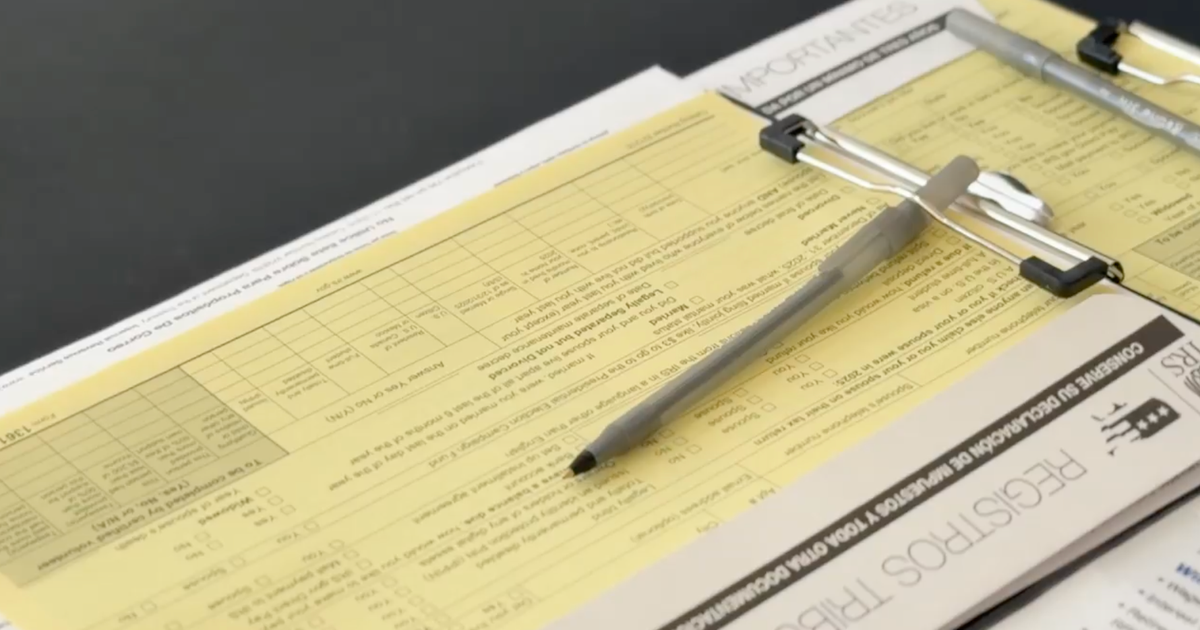Smaller tax refunds don't mean higher tax payments
Many taxpayers will benefit this year from the 2017 tax law, even including residents of notoriously high-taxed New Jersey, accountants say. But the taxpayers don't seem happy about it.
They're upset because the tax refund checks mailed to those who've filed early are trending lower than last year's. But it's not because the filers are paying more taxes. It's due to the reduced amounts withheld from workers' paychecks during 2018.
"I just completed an individual's tax return whose 2018 income was similar to the income earned in 2017," said Hal Terr, a co-leader of private client services at accounting firm WithumSmith+Brown. "The 2018 overall tax liability was less than 2017's."
A Matawan, New Jersey, accountant who handles small businesses said a majority of his clients -- probably 85 percent -- will be getting a tax break. New Jersey is significant because it's considered ground zero for the new tax law. The Garden State has the highest real estate taxes in the nation as well as a state sales tax of 6.625 percent. Other high-tax states include Connecticut, Maryland, Massachusetts and New York.
The new tax law caps the real estate deduction for state and local taxes, known as "SALT," at $10,000. But since tax rates dropped by 3 percent across the board, many taxpayers will still benefit.
When you run the numbers for a typical New Jersey homeowning couple who previously itemized on their tax return, it shows that they paid $9,491 in real estate taxes and that their state and local tax deduction was $10,998. This year they wouldn't itemize because their total deductions are less than the new standard deduction of $24,000 for a couple filing jointly, almost double last year's.
According to major tax-preparation firms, it's too early to tally up the 2018 tax season. The nation's largest tax preparer, H&R Block, told CBS MoneyWatch it was "not releasing data trends at this time" and probably wouldn't for another month. Other tax preparers had no comment.
Since financial firms are trying to adjust to the new law, accountants have seen delays in getting required financial filings, such as 1099s, to taxpayers. As a result, accountants are operating with limited information. But the available data indicate that most taxpayers won't be hurt, at least at the lower and middle-income levels -- and many could even be helped.
Less withholding is the key
"It's early in the process," said Pat Walsh, tax group leader at Withum, "and with the early returns we're not seeing the annual tax liability move materially." The perception that refunds are lower is correct, but for many that's because the amount withheld from paychecks during 2018 was also lower, meaning they got the money back throughout the year, rather than waiting for a tax season refund.
"But you'd be surprised how many people would rather leave their money with the government and then receive it all at once for something like a vacation," said Walsh. For some filers, it makes sense to let the government "sit on it," he admitted, particularly with interest rates on savings as low as they are now.
If New Jersey residents climb higher up the economic ladder, the SALT provisions still don't affect them, said Withum's Terr. In 2017, those earning $250,000 to $750,000 were usually subject to the alternative minimum tax (AMT), which doesn't allow deductions for state income or local real estate taxes. So although SALT are capped at $10,000 in 2018, those taxpayers didn't receive any benefits in 2017 from the deduction, either.
"Essentially, it's a wash," Terr said.
Will SALT hurt some tax filers? Yes, but primarily the very wealthy. "It pulled the rug out from under taxpayers in our area," said Tom Farrell, wealth management leader at Withum. He recommended that you "bunch together" your charitable deductions in high-tax years to get them above the $20,000 limit. Donating appreciated stocks to a charity is also a good strategy.
Another strategy: Convert traditional IRA assets to a Roth IRA since you pay taxes only at the time of the conversion rather than when you take withdrawals. Or, Farrell added, you could move out of a high-tax state such as New Jersey to a low-tax one like Florida.



